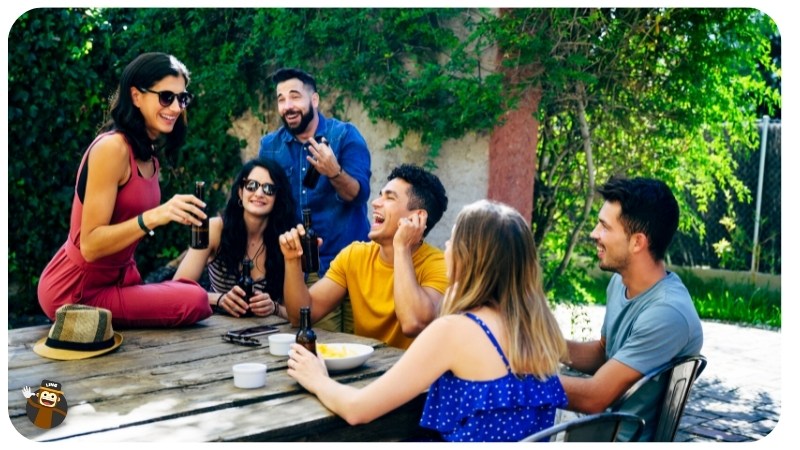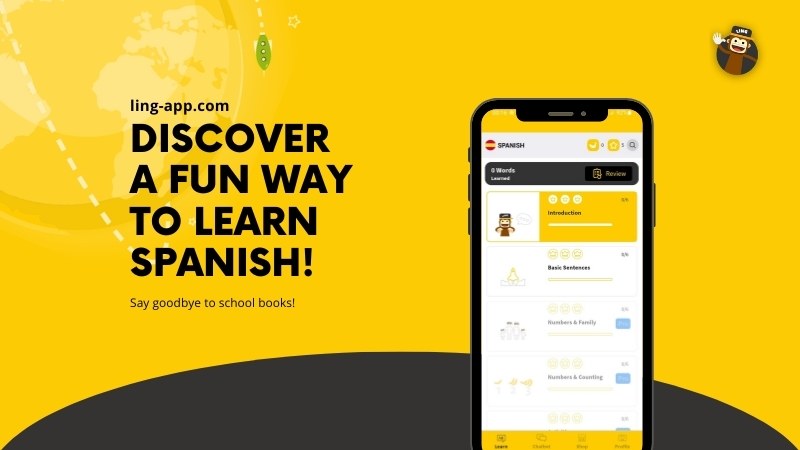Are you looking to build long-lasting bonds with Spanish-speaking people? Along with greetings like ‘Hola‘ (hello), knowing how to ask how are you in Spanish is essential for any communication between friends, family, or co-workers.
In Hispanic countries, it is a cultural and respectful norm to ask the other person how they are. Show that you care about the other person, that you care about what they’ve been going through on a day-to-day basis, and ultimately show support and understanding.
What if he told you that he is not well? You never know when someone needs to talk about their feelings. Latin American people are charming and willing to give someone a word of encouragement if they tell them they are unwell.
I bet you want to know all the possible ways to talk with your Hispanic friends about how they are doing. So today’s post will cover all the alternatives, plus how to respond if others ask how you are doing in Spanish.
Let’s begin!
How To Say How Are You In Spanish?
The singular and informal way is ‘¿Cómo estás?,’ while the formal and singular version is ‘¿Cómo está?‘
If you are talking with more than one person, you can say ‘¿Cómo están?‘ which is a neutral phrase, meaning that you can use it in both formal and informal settings.
Now, I would like to focus on understanding the meaning of this phrase in-depth prior to learning about all the other phrases.
So, what is the exact meaning of the phrase ‘¿Cómo estás?’ The word ‘Cómo’ is a question word that translates to ‘how.’ While ‘Estás’ is the verb ‘Estar’ (to be) conjugated in the present tense.
So the meaning of this phrase represents the intent to know the status of the other person; how they are, either physically or emotionally.
Another important point to learn is that Spanish from Latin America and Spanish from Spain differ from each other in many aspects. So, if you are traveling to Spain, the correct way of saying this phrase would be ‘¿Cómo estáis?‘
See the differences in the examples below:
Example In Spanish From Spain:
- A: ¿Cómo estáis vosotros hoy? (How are you all today?)
- B: Estamos muy bien, gracias! (We are fine, thank you!)
Example In Spanish From Latin American Countries:
- A: ¿Cómo están ustedes hoy? (How are you all today?)
- B: Estamos muy bien, gracias! (We are fine, thank you!)
Now that you know this key phrase, let’s get to know more advanced phrases:
All Common Phrases, Including Slang:
The following are all the phrases you can use to ask someone how are you in Spanish in formal, neutral, informal, and slang.

Formal & Neutral
- ¿Cómo está? (How are you? – singular)
- ¿Cómo están todos? (How are you all? – plural)
- ¿Cómo le ha ido? (How have you been? – singular)
- ¿Cómo está usted? (How are you doing? – singular)
- ¿Cómo le va? (How are you? – singular)
- ¿Cómo se siente? (How are you feeling? – singular)
Formal Context Examples:
- Singular
- Plural
Informal
When you speak Spanish, you should try to see if the other person is talking to you formally or informally. And if you are talking with someone close such as friends or family, it is safe to say an informal greeting followed by any of these phrases.
- ¿Cómo estás? (How are you? – singular)
- ¿Cómo va todo? (How’s it going? – plural or singular)
- ¿Cómo te va? (How are you doing? – singular)
- ¿Que hay de nuevo? (What’s new?)
- ¿Qué es de tu vida? (Literally means: What about your life? – singular)
- ¿Cómo andas? (How are you? – singular)
- ¿Qué hay de nuevo? (What’s new?)
- ¿Qué tal? (What’s up?)
- ¿Cómo va la cosa? / ¿Cómo va la vida? (How is life going? – singular or plural)
- ¿Qué te cuentas? (What’s up? – singular)
- ¿Cómo van las cosas? (How are things going? – singular or plural)
- ¿Cómo te sientes? (How are you feeling? – singular)
- ¿Cómo les va? (How is it going? – plural)
- ¿Cómo te ha ido? (How have you been? – singular)
- ¿Qué tal estás? (How are you? – Singular)
- ¿Qué tal están? (How are you? – Plural)
- ¿Cómo vas? (How are things going? – Singular)
- ¿Qué cuentas? (What’s up? – Singular)

Informal Contexts Examples:
- #1
Slang
Let’s get to know some words in Spanish Slang, known as ‘Jerga’ used across different Spanish speaking countries.
- ¿Cómo andas? (How are you? – Popular across Latin America)
- ¿Qué hubo? (What was there? – Popular in Colombia)
- Qué onda? (What’s up?)
- ¿Qué más? (What’s up? – Popular in Ecuador and other Latin American countries)
- ¿Qué pasa? (What’s up?)
Slang Examples In Conversations:
- #1
How Would You Respond?
Whenever someone asks you ‘cómo estás?’ after they greet you, you need to have some phrases under your sleeve to answer back. But that goes beyond saying, ‘I’m good.’ There are many alternatives that you can choose from and start a possible conversation afterward while also leveraging asking the other person about how they are as well.
Ready To Start Spanish Conversations?
Did this vocabulary list prompt your curiosity about the Spanish language? I’m sure you now want to learn more and talk with Spanish speakers!
One of the essential keys to language learning is mimicking the words and phrases locals use in everyday conversations. That is when you finally get to speak and sound like a local does.
So continue practicing today’s list of phrases to be prepared for any situation, informal or formal. Plus, impress your Spanish-speaking friends by talking to them with some slang too!
If you enjoyed today’s post, don’t hesitate to continue learning how to introduce yourself in Spanish, apologize, say thank you, and you are welcome. We are here to help you improve your skills every day!
Ready To Fully Learn Spanish?
Are you still curious whether you should try Ling App or not? We can motivate you by sharing how effective this app has been for many people worldwide!
Besides keeping your mind sharp and making travel easier, enhancing your resume, and opening millions of possibilities for your future, learning Spanish is also beneficial to make communication effortless. It helps you interact and engage with those you have always wanted to talk to without restraint or language barriers.
Maybe you have family members who live in Latin America and can’t communicate in English. Wouldn’t it be amazing to make them feel as joyful as ever while listening to your efforts to speak their native language?

That is the power of language. And we have it in our hands to create stronger bonds, learn about different cultures, and, most importantly, overcome ourselves daily.
Millions of users are already going through this stunning process by learning with Ling App. A companion that can be with you everywhere you go! The perfect resource to answer your language questions at any time.
Indulge yourself with at least 10 minutes of practice a day of fun and super engaging lessons and quizzes, and you will see results in a short amount of time.
Are you ready? Your goal of talking like a pro in a Spanish-speaking country is just a click away, so start learning Spanish with Ling App now!
Download the app from App Store and Play Store.











